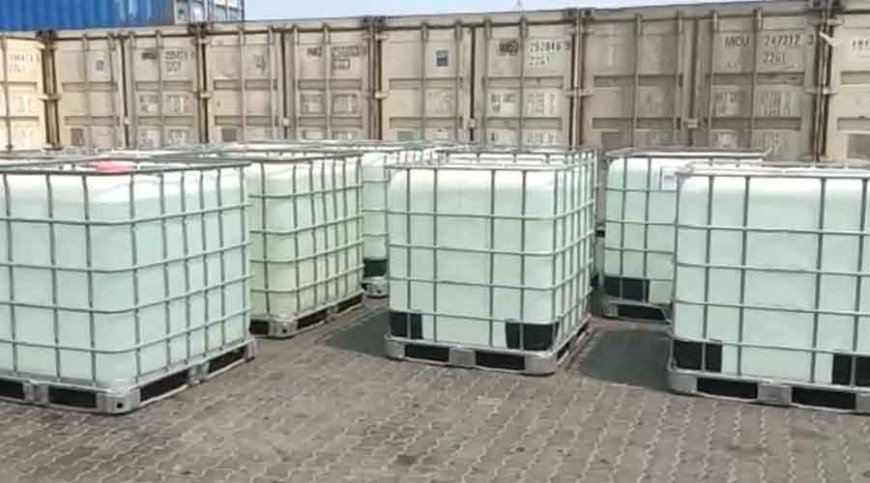Mono Ethylene Glycol Production Plant Project Report 2025 Machinery, Cost and Details
mono ethylene glycol production cost analysis reveals key expenses & feasibility, enabling stakeholders to make well-informed economic decisions efficiently.

Mono Ethylene Glycol (MEG) is a colorless, odorless, and hygroscopic organic compound with the chemical formula C?H?O?. It is primarily used as a raw material in the production of polyester fibers and polyethylene terephthalate (PET) resins, which are widely used in textile and packaging industries. MEG also serves as a key component in antifreeze formulations due to its excellent thermal conductivity and low freezing point when mixed with water. It is produced through the oxidation of ethylene followed by hydrolysis of ethylene oxide. MEG's versatility, high boiling point, and solvent properties make it valuable in various industrial applications, including coolants, deicing fluids, and as a humectant in some products.
Setting up a Mono Ethylene Glycol (MEG) production plant involves securing access to ethylene feedstock, typically derived from petrochemical processes. The production requires oxidation of ethylene to ethylene oxide, followed by hydrolysis to produce MEG. The facility must include reactors, separation units, and safety systems for handling hazardous materials. Strategic location near raw material sources and infrastructure for distribution is essential. Compliance with environmental and safety regulations, along with investment in skilled labor and quality control systems, is crucial for efficient and sustainable operations.
IMARCs new report titled Mono Ethylene Glycol (MEG) Production Cost Analysis 2025: Industry Trends, Plant Setup, Machinery, Raw Materials, Investment Opportunities, Cost and Revenue provides a comprehensive roadmap for setting up a mono ethylene glycol (MEG) production plant. The study encompasses all the essential information needed to enter the mono ethylene glycol (MEG) industry, including capital investment, operating costs, raw material requirements, and profit projections. The mono ethylene glycol (MEG) production cost analysis offers detailed insights into cost structures and economic feasibility, helping stakeholders make informed decisions. It is a valuable resource for entrepreneurs, investors, researchers, consultants, business strategists, and anyone with an interest or stake in the mono ethylene glycol (MEG) sector.
Key factors for setting up amono ethylene glycol (MEG) production plant:
- Market Research
The mono ethylene glycol (MEG) industry is influenced by several key trends and market drivers. One of the primary drivers is the growing demand for polyester fibers and polyethylene terephthalate (PET) in the textile and packaging sectors, particularly in emerging economies. The rise of e-commerce and shifting consumer preferences toward sustainable packaging are also contributing to increased PET usage. Technological advancements in MEG production, including bio-based alternatives and more energy-efficient processes, are shaping the industry's evolution. Additionally, fluctuations in crude oil prices impact the cost of ethylene feedstock, thereby affecting MEG production economics. Environmental regulations and sustainability goals are pushing manufacturers to explore greener production methods and improve lifecycle management. Asia-Pacific, especially China and India, continues to dominate MEG consumption and production, driven by expanding industrial and consumer markets. Meanwhile, global supply-demand imbalances and logistical challenges influence pricing volatility and investment decisions. These combined factors underscore a dynamic market landscape where innovation, regional growth, and regulatory pressures are key to long-term competitiveness.
The report offers an exhaustive overview of the global mono ethylene glycol (MEG) industry, including a detailed breakdown by segments and regions within the sector. It also includes in-depth analyses of prices involved, market trends and historical data and forecast.
- Market Forecast
- Price Analysis
- Market Breakup by Region
- Market Breakup by Segment
- Market Trends
Request for a Sample Report: https://www.imarcgroup.com/mono-ethylene-glycol-manufacturing-plant-project/requestsample
- Planning and Designing
A detailed and up-to-date business plan is indispensable for mapping out the steps to establish and operate a mono ethylene glycol (MEG) production facility. This report offers in-depth details about the process flow and the various unit operations involved in a mono ethylene glycol (MEG) production plant.
- Technical Tests
- Quality Assurance Criteria
- Mass Balance and Raw Material Requirements
- Unit Operations Involved
- Product Overview
- Legal and Regulatory Compliance
Understanding and complying with the intricate framework of business laws and regulations is a vital aspect of establishing a mono ethylene glycol (MEG) production facility. This requires a detailed knowledge of legal obligations, such as labor laws, environmental standards, tax policies, and industry-specific regulations.
- Plant Requirements and Costs
The report offers a detailed location analysis, including insights into land selection, key criteria, location importance, environmental considerations, and associated costs for establishing a mono ethylene glycol (MEG) production facility. It also provides information on plant layout and the factors that impact its design.
- Human Resource Requirements and Costs
- Utility Requirements and Costs
- Transportation Requirements and Costs
- Packaging Requirements and Costs
- Raw Material Requirements and Costs
- Machinery Requirements and Costs
- Plant Layout
- Land, Location and Site Development
- Hiring and Training
Effective workforce planning and recruitment strategies are critical for assembling a skilled and efficient team to manage a mono ethylene glycol (MEG) production plant. This process includes identifying the specific skills and qualifications needed for different roles and anticipating future staffing requirements based on production goals and business expansion.
- Developing Health and Safety Protocols
- Implementing Training Programs for Employees
- Complying with Labor Laws and Regulations
- Supply Chain Management
Building strong partnerships with suppliers and vendors is crucial to maintaining a dependable and cost-efficient supply chain. This requires choosing partners who can reliably deliver high-quality raw materials and components at competitive rates.
- Planning Logistics and Transportation Networks
- Implementing Efficient Inventory Management Systems
- Project Economics
This entails a thorough analysis of the costs associated with a mono ethylene glycol (MEG) production plant, covering capital expenditure (CapEx), operating expenditure (OpEx), income forecasts, taxation, depreciation, liquidity, profitability, payback period, net present value (NPV), uncertainty, sensitivity assessments, etc. In addition to this, it includes an in-depth review of financial assistance options and a comprehensive list of certifications necessary for establishing the plant.
- Financial Analysis
- Profit Projections
- Taxation and Depreciation
- Revenue Projections
- Expenditure Projections
- Operating Costs
- Capital Investments
- Marketing and Distribution Strategies:
Creating a robust marketing strategy and establishing strong brand positioning are vital for building a production plant's market presence. This process includes conducting thorough market research to identify customer needs, preferences, and competitive trends.
- Identifying Distribution Channels and Sales Networks
- Leveraging Digital Marketing and E-Commerce Platforms
- Participating in Trade Shows and Industry Events
About Us:
IMARC Group is a global management consulting firm that helps the worlds most ambitious changemakers to create a lasting impact.The company excel in understanding its clients business priorities and delivering tailored solutions that drive meaningful outcomes. We provide a comprehensive suite of market entry and expansion services. Our offerings include thorough market assessment, feasibility studies, company incorporation assistance, factory setup support, regulatory approvals and licensing navigation, branding, marketing and sales strategies, competitive landscape, and benchmarking analyses, pricing and cost research, and procurement research.
Contact Us:
IMARC Group
134 N 4th St. Brooklyn, NY 11249, USA
Email:sales@imarcgroup.com
Tel No:(D) +91 120 433 0800
United States: +1-631-791-1145



































